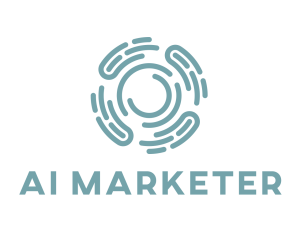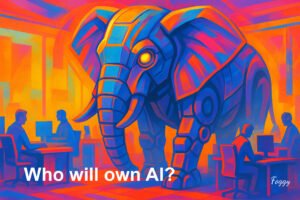By Jeff Domansky
Artificial intelligence is already revolutionizing knowledge work, but not in the way you might think. A 2023 Harvard study[1] reveals a fascinating truth: AI doesn’t just make workers better—it creates AI productivity winners and losers based on how it’s used.
Here’s the deal: AI can significantly boost productivity and quality if you know what you’re doing. But if you lean too hard on it for the wrong tasks? Your performance might tank.
The Jagged Frontier of AI: Where It Helps and Where It Hurts
AI isn’t a magic bullet—it has what the researchers called a “jagged frontier” of capabilities. Some tasks fall inside this frontier, meaning AI can handle them exceptionally well. Others fall outside of it, where AI struggles and can mislead human decision-making.
The Harvard study found that for tasks within AI’s wheelhouse, workers using AI:
- Completed 12.2% more tasks than those without AI.
- Worked 25.1% faster with significantly improved accuracy.
- Produced work 40% higher in quality than their AI-less peers.
But here’s the kicker: for tasks outside AI’s capabilities, workers who relied on AI were 19% less likely to get things right. Overconfidence in AI’s ability to analyze complex, ambiguous data led to more mistakes, not fewer. Knowledge workers, take note!
AI’s Biggest Secret: It’s an Equalizer
One of the most surprising findings? AI doesn’t just make the best workers better—it lifts up the underdogs.
- Workers with below-average skills improved by 43% when using AI.
- Top performers only saw a 17% boost in comparison.
AI has a democratizing effect: it helps bridge skill gaps, making less experienced workers perform at near-expert levels—as long as they use it wisely.
This is a really valuable insight for managers implementing AI among teams. AI will make subpar workers better, but top performers may not improve as much.
Centaurs vs. Cyborgs: Two Types of AI-Powered Workers
The study also uncovered two distinct AI usage styles that separate the winners from the losers:
- Centaurs – These workers treat AI like partners, strategically dividing tasks between themselves and the machine. They delegate routine work to AI but retain critical thinking and decision-making.
- Cyborgs – These users fully integrate AI into their workflow, interacting constantly with the tool to refine ideas and problem-solve dynamically.
Both approaches worked well—but only when users actively questioned AI’s output.
Those who blindly trusted AI made far more errors than those who maintained a skeptical, analytical approach.
Creativity Tradeoff: AI Boosts Productivity, But Can Kill Innovation
Another unexpected finding? AI reduces the diversity of ideas. While AI-assisted workers created higher-quality content, their outputs were less varied than those who worked without AI.
This means AI might be fantastic for refining ideas, but over-reliance could lead to a homogenization of thought—something companies need to watch for when using AI for brainstorming and innovation.
How Knowledge Workers Can Win with AI
So, what’s the takeaway for marketers, strategists, and creative professionals using AI? Treat AI like a powerful but fallible assistant.
Here’s how to maximize AI’s potential while avoiding its pitfalls:
- Know AI’s strengths and weaknesses. Use it for well-defined, structured tasks—like summarizing reports, drafting content, and analyzing data patterns.
- Don’t trust it blindly. Always verify AI’s recommendations before making critical decisions.
- Adopt a Centaur or Cyborg approach. Collaborate with AI rather than relying on it entirely.
- Encourage creativity. Don’t let AI-generated outputs dictate final decisions—push for human-led originality.
- Train your team to navigate the AI frontier. The workers who thrive will be those who understand when and how to use AI effectively.
Final Thought: AI is a Tool, Not a Crutch
AI is not here to replace knowledge workers—it’s here to amplify their capabilities. But the difference between success and failure lies in how you wield it. The best AI-powered professionals will use it strategically, critically, and creatively.
The future belongs to those who can ride the AI wave—not those who let it do the thinking for them.
Recent post:
9 Best AI Writing Tools for Content Creators
[1] Dell’Acqua, Fabrizio, et al. Navigating the Jagged Technological Frontier: Field Experimental Evidence of the Effects of AI on Knowledge Worker Productivity and Quality. Harvard Business School, 2023, https://www.hbs.edu/ris/Publication%20Files/24-013_d9b45b68-9e74-42d6-a1c6-c72fb70c7282.pdf.











